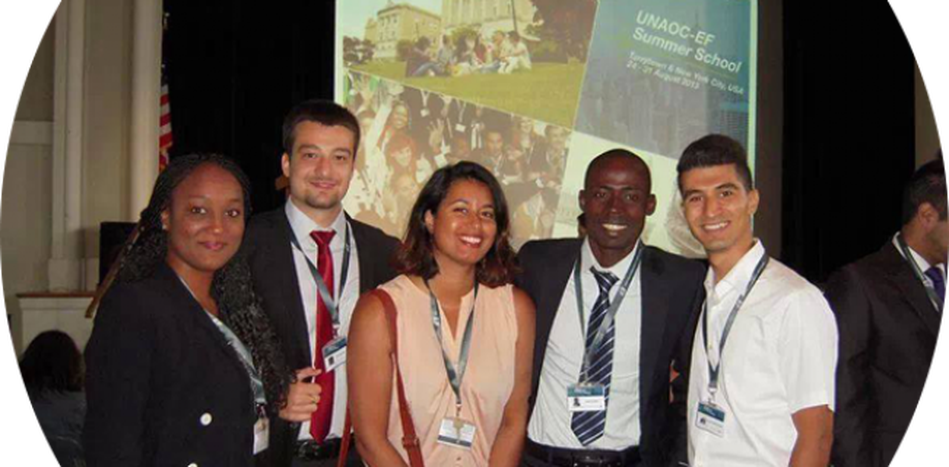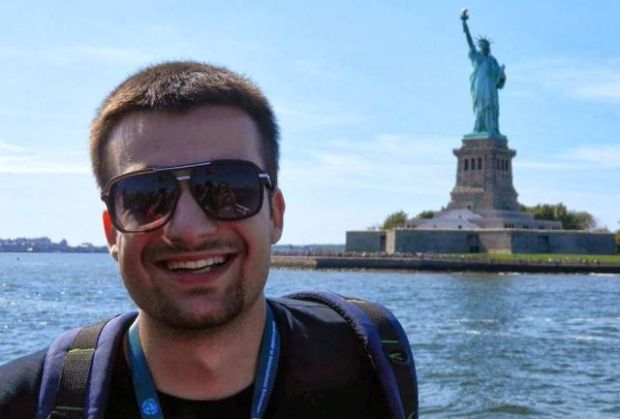
UN Summer School in New York: Macedonian Student Shares the Experience!
Published on
Petar Jankuloski from Prilep, Macedonia is not just an ordinary student at the Department of Translation and Interpreting at the Ss. Cyril and Methodius University in Skopje. Last year, he had an amazing opportunity to be selected as one of the 100 participants at the United Nations Alliance of Civilizations (UNAOC) and Education First (EF) Summer School in Tarrytown, New York.
Edited by: Ana Alibegova
Petar Jankuloski from Prilep, Macedonia is not just an ordinary student at the Department of Translation and Interpreting at the Ss. Cyril and Methodius University in Skopje. Last year, he had an amazing opportunity to be selected as one of the 100 participants at the United Nations Alliance of Civilizations (UNAOC) and Education First (EF) Summer School in Tarrytown, New York. After having participated at various youth events, conferences, as well as at the Work and Travel Program, Petar decided to take the challenge and applied for this unique event. In the following lines, he gives you tips and tricks on how to make your application better and explains what he learned during that seven days in the United States.
M!: Peter, you are a student at the Faculty of Philology in Skopje and as you say, you are not directly connected to the world of politics. Where does the interest in the work of United Nation come from?
Petar: Being born and raised in the Balkans, a multicultural and multiethnic region which is so diverse and complex in its essence is a reason for itself, wouldn’t you agree? I think the Balkans are a perfect example (both positive and negative) of what the UN stands for. However, the UN is not only about high-level politics, vetoes and wars but about youth empowerment, dialogue, cross-cultural communication, enhancement of negotiation skills and implementation of cooperative action on international level as well. My everyday life is intersected with situations where negotiation, dialogue and respect are an essential part of living. I had found myself in the values and goals the summer school supports and I filled in the application form.
 M!: Last year, UNAOC informed that they have received about 20,000 applications. Why do you think yours was among the best 100 selected?
M!: Last year, UNAOC informed that they have received about 20,000 applications. Why do you think yours was among the best 100 selected?
Petar: The application process matches the complexity of the summer school and the diversity of the candidates themselves. It’s consisted of several sections with essay-type questions and an English language proficiency test. To identify who matches the eligibility criteria among more than 20,000 worldwide applications is not an easy task. I believe that there were several reasons, but as most important I would point out the language proficiency, regional balance, the participants’ professional and local network and the overall practical knowledge and attitude as a candidate. I reckon that the emphasis was not on what we, as applicants, had done in the past but on what we will do in the future. In my application I tried to emphasize my personal background, my plans and ideas for the future as well as my global experience. Moreover, my knowledge in English and my work as a volunteer also did the trick.
M!: How would you describe the event? What made this conference special?
Petar: The whole event was a story for itself. Both the UNAOC and EF had outdone themselves. Eight days of intense lessons, workshops, roundtables, debates and visits to sites under the leadership of some of the most renowned experts in the fields of business, human rights, social entrepreneurship, volunteerism, political affairs, media and communications. In addition, the conference was completely different from every other event I have participated. Firstly, it was at a much higher level. Secondly, it consisted of more interactive sessions and non-formal visits that made the impression even better. Additionally, all participants were young people in the age of 18-35, making this event similar to those in which I had the chance to participate at.



